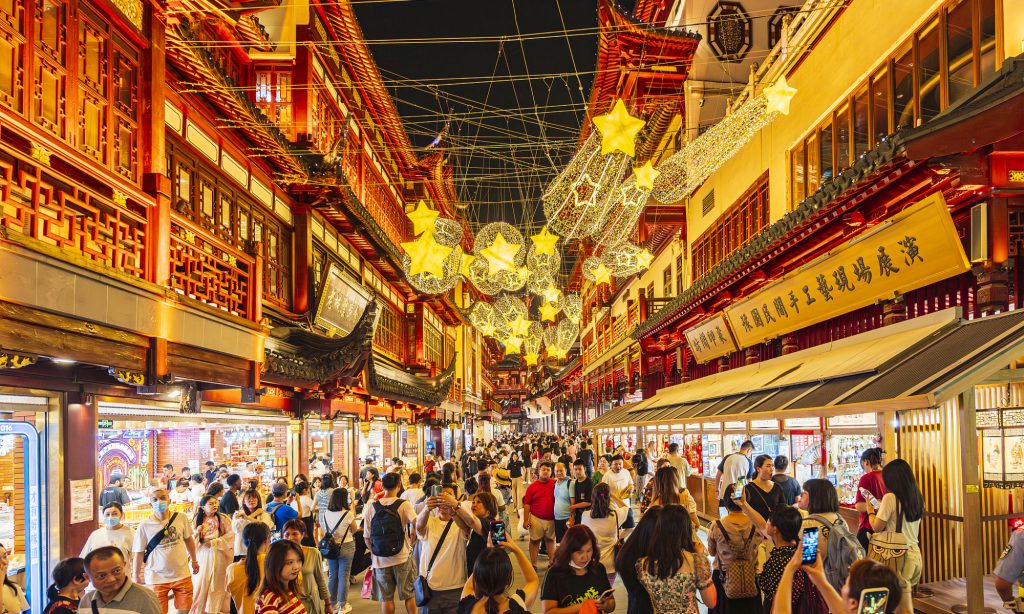China’s tourism market poised for Mid-Autumn Festival surge, driven by cultural and short-distance trip boom

With this year's Mid-Autumn Festival drawing near, China's tourism market is gearing up for another surge in travel and consumption activity, building on the strong momentum from a bustling summer travel season, industry insiders and experts said.
They predict that this year's Mid-Autumn Festival holidays, from September 15 to 17, will see sustained high demand for short-distance travel. Combined with the upcoming National Day holidays, this is expected to inject continued vitality into consumption, contributing to economic growth in the latter half of the year.
Data from China's online travel services platform Fliggy showed a double-digit increase in bookings for hotels, domestic car rentals, and tickets for this popular traditional festival compared to 2019. The overall booking volume for the Mid-Autumn Festival holidays is significantly higher compared to the Dragon Boat Festival, despite both having a three-day duration.
Hotel reservations have surged by around 50 percent from 2019 levels, with high-end and boutique accommodation accounting for 60 percent of total bookings, according to a recent report published by Fliggy.
Several travel service platforms in China have reported that the Mid-Autumn Festival travel trend is dominated by short to mid-distance trips, with "micro-vacations" to nearby cities and provinces being especially popular. Routes within a two-hour drive or three-hour high-speed rail journey are particularly busy.
According to Tuniu, an online travel platform, nearly 40 percent of travelers are planning short trips to local or nearby areas during the festival, with around 30 percent opting to start their journeys 1-2 days before the festival.
Experts attribute the strong travel demand to favorable weather, off-peak prices, and the traditional cultural significance of family reunions during the Mid-Autumn Festival.
"Emerging travel trends, including cultural tours, urban leisure, and sports tourism, not only reflect an expansion in the Chinese consumption preferences but also promise to inject sustained vitality into the domestic economy," Jiang Yiyi, vice dean from the School of Leisure Sports and Tourism at Beijing Sport University, told the Global Times on Saturday.
Tuniu's report revealed that theme parks, resort getaways, and traditional cultural tours are among the most popular bookings for this year. Another online travel service provider Tongcheng reports a 77 percent increase in searches for ancient towns and gardens over the past week.
Moreover, the buzz surrounding China's home-developed blockbuster game Black Myth: Wukong has highlighted the rich cultural heritage of North China's Shanxi Province, where many of its filming locations are situated. As a result, Taiyuan, Datong, and Shuozhou in Shanxi have recently become popular destinations.
Data from the travel platform Mafengwo indicated that Mount Wutai in Shanxi, a notable filming location for the popular video game, topped the list of favored 'moon-viewing' destinations for this year's Mid-Autumn Festival, per media reports.
Yu Jia, a tourism enthusiast from Changzhi in southeastern Shanxi, told the Global Times on Saturday that she has planned a driving holiday with two of her friends to Taiyuan and Datong, inspired by the cultural sites shown during the game.
China's recent summer travel season broke records for passenger volumes and saw strong growth in bookings and spending. Jiang expects this momentum to carry into the coming month, potentially boosting sectors like transportation, hospitality, and cultural products.